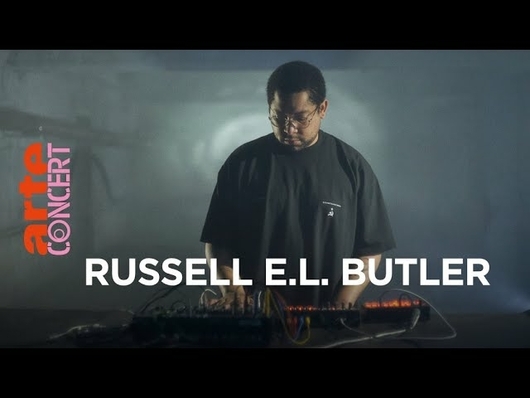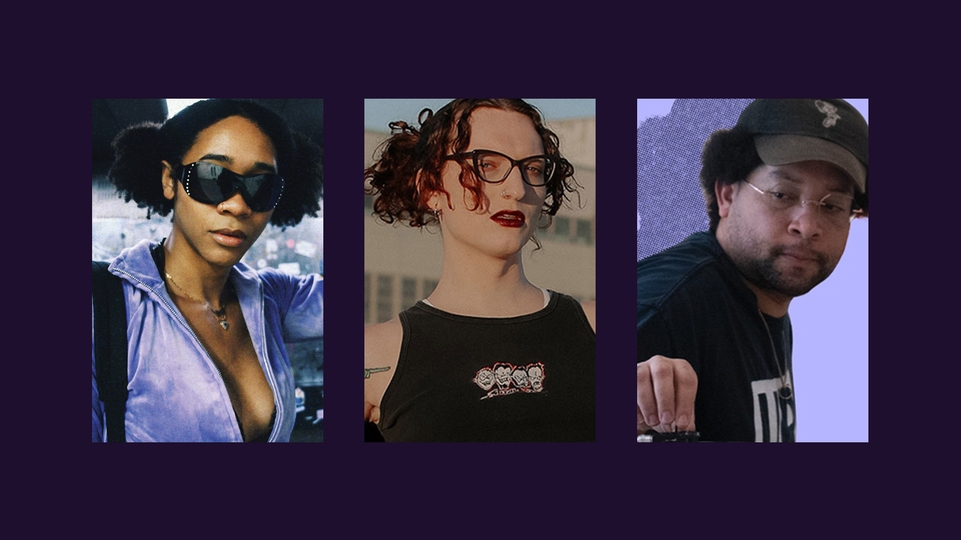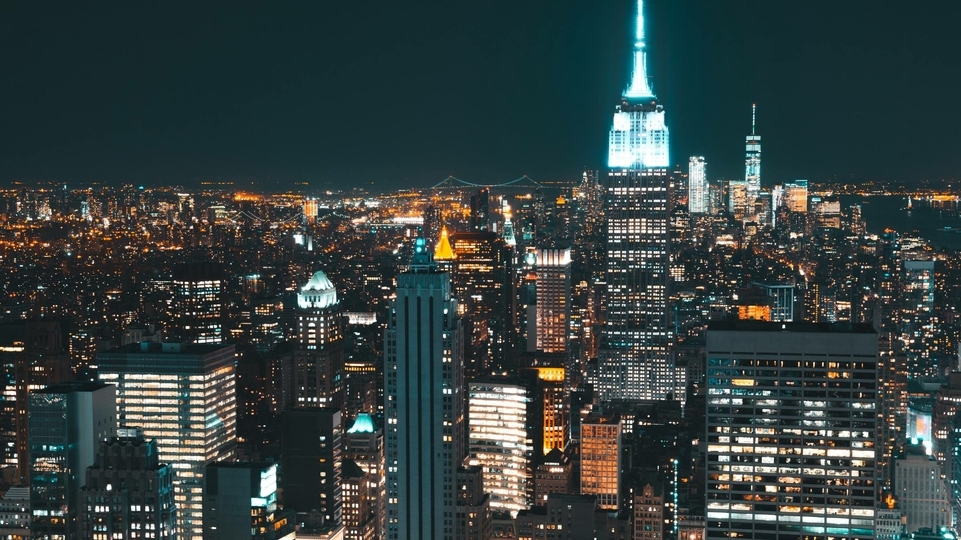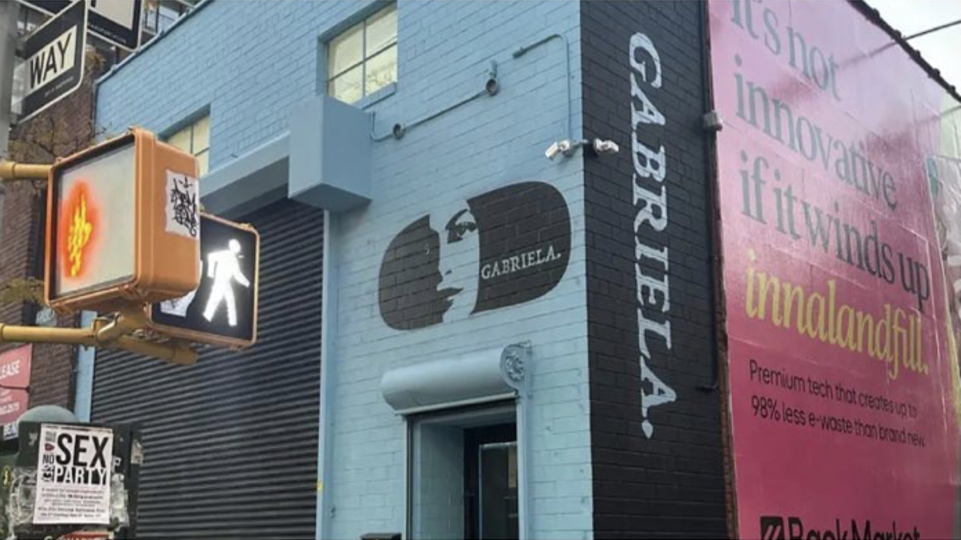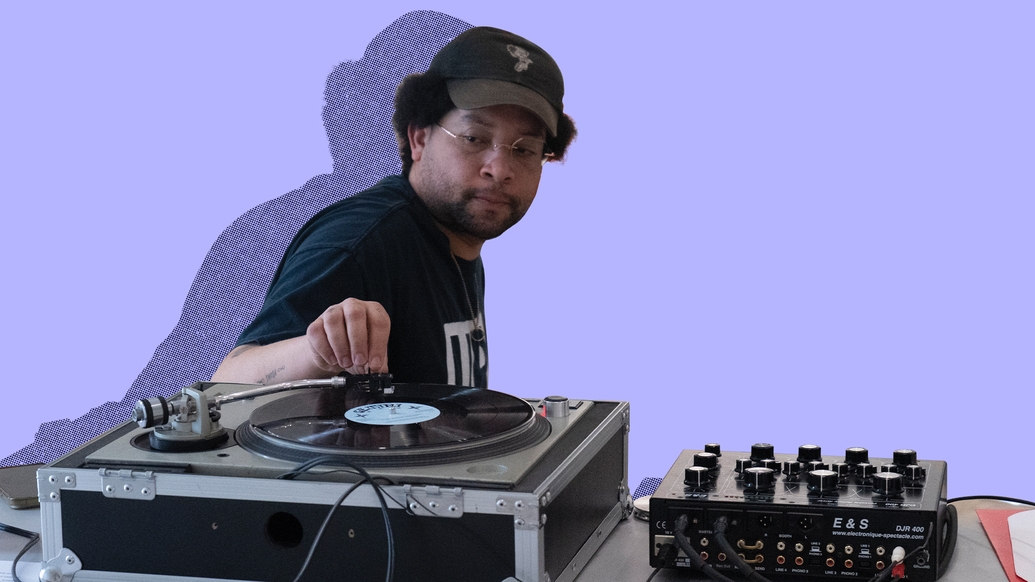
Russell E. L. Butler: a deeper state of being
Russell E. L. Butler has been making evocative music for nearly a decade. Their latest, the subtly dazzling, hugely expressive ‘Call Me G’ on T4T LUV NRG, is perhaps their best work yet. But, as Bruce Tantum learns in conversation with the Brooklyn-based artist, the album is more than just a collection of beautiful tracks.
On one level, it’s not all that difficult to wrap one’s head around ‘Call Me G', a new album from the hand of Russell E. L. Butler. Released on Eris Drew and Octo Octa’s T4T LUV NRG label, its seven cuts are elegantly rendered, slightly otherworldly house-and techno-adjacent electronic music, of a sort that’s easy to lose one’s self in. ‘Stare Into The Light Beam’ layers rat-a-tat snares over an eerie, Fingers Inc–style synth tone; the echoing chords in ‘I’m Dancing, No One Is Watching’ glide over rubbery sub-bass. ‘Secret In A Silent Voice’ could serve as a salute to the aqueous Detroit electro of the ’90s, while the 10-minute title track, infused with marimba-esque tones and Butler’s spoken-word vocals, unspools off like a mini-epic mood piece. On a superficial level, it’s a lovely listen.
But ‘Call Me G’ is much more than that. Not every LP comes with a prose poem, for instance — but this release is accompanied by a beautifully written composition, penned by Butler, titled Accumulation. “My body, suspended by the pressure of the ocean’s floor,” the piece begins. “My toes dangle just above sands that feel like the roughness of the top sheet on an unfamiliar bed. Just a few grains of this sand possess the softness of the hair my cat sheds, dusted off the floor after collecting for some days or months. The floor possesses the grains of many nights at rest, in that space between moments where we all wait.”
A few hundred words of metaphysical searching later, the piece ends with the following: “A new state of being? What even is that? All I know is what has occurred, unending, unquestioned, in this place that possesses nothing. Not even a name.”
“Essentially the piece is narrating the creative process, and in making things as really any kind of artist, which is that you’re forced into a world where many things already exist, and you’re not so much creating things out of nowhere,” Butler explains. “It’s through an accumulation of these different experiences, these different kinds of social interactions and the environments that you’re in, that feed into the things that you make. I talk about the softness of my cat’s hair or the grains of sand at the bottom of the ocean floor — these things getting pulverised and changed into something else. That is the way it occurs.”
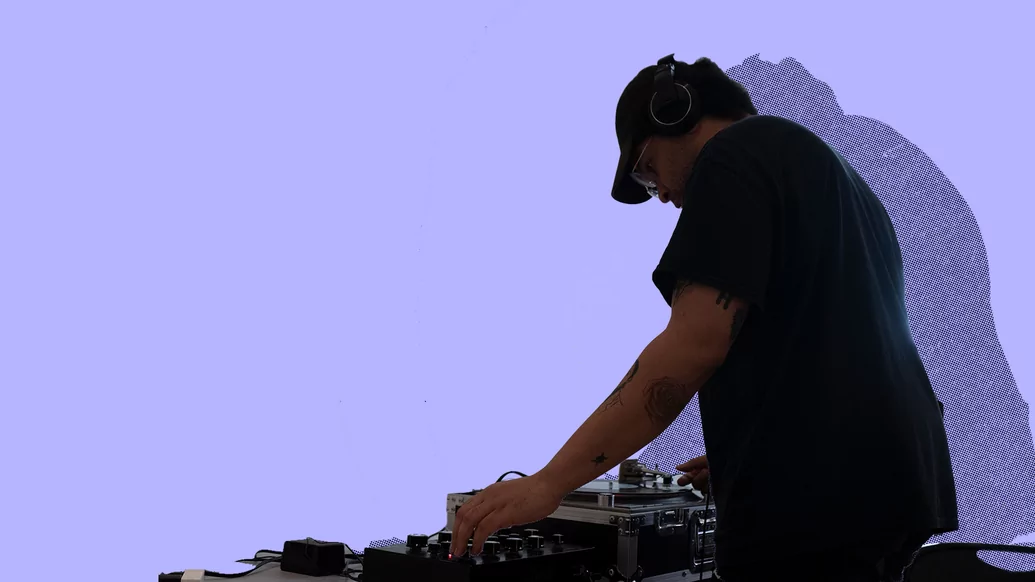
The genesis of ‘Call Me G’ came when the DJ, producer, and modular synth acolyte was asked to contribute a performance to Arte Concert Presents Tresor 30’s series of events, celebrating three decades of the Berlin institution’s contributions to electronic music. After the performance, a seed had been planted. “I was like, ‘Yeah, let me start to develop something new around this, but take more time on it,’" Butler recalls. "Like, intentionally slow the process down, and really look at other artists who not only treat the tools that they’re using as materials or mediums, but who treat the sounds themselves in that same way."
“So I would record some jams, and then I would take a part of that jam and sample it and then make something out of that," they continue. "I would do that a couple of times. And then eventually, through the live performances, I would find that this hit kind of better, or this didn’t really do that, and I would make adjustments from there and then eventually decide on the form. That’s kind of how it came together.”
But like all of Butler’s work, it isn’t quite that straightforward. Always, there are layers upon layers of experience and intention that go into their music.
Butler grew up in Bermuda, and later moved to the States to attend a Quaker boarding school outside of Philadelphia. They moved to Boston for art school, where they were introduced to both synths and noise music — faint traces of the latter are apparent in the textures of their debut release, 2015’s ‘God Is Change’ EP.
After Boston, the next move was to Oakland, where they fell in with the city’s then-vibrant DIY scene. They were slated to perform at Ghost Ship on 2nd December 2016, the night of the deadly fire at the artist-collective space, but they were not in the venue when the disaster unfolded. Three dozen people perished in the conflagration that night, many of them close friends of Butler’s. The beautiful and evocative ‘The Home I’d Build For Myself And All My Friends’ LP, released in 2018, was completed in the wake of that tragedy, and bears its scars. “It still is this residual factor in my life,” they say. “Complex PTSD is not something that simply goes away.”
Butler relocated once again, in the autumn of 2019, to Brooklyn. In 2021, they were tasked with documenting and digitising a large portion, around 5,000 records, of the late Frankie Knuckles’ vinyl collection for a piece called ‘A Song For Frankie’, a collaboration between Chicago artist Theaster Gates and the curator Antwaun Sargent, a director at the Gagosian Gallery in Manhattan. Over three months — five days a week, eight hours a day — Butler toiled over the collection. Two years later, they say that the way it influences their work is palpable — and spectral remnants of it are there, albeit in barely discernible form, within the grooves of ‘Call Me G’.
“There’s a great podcast that I love, Edward George’s The Strangeness Of Dub,” Butler says. “In one episode, he talks about erasure, about how erasure isn’t ever the complete wiping out of something. It’s more like writing something in pencil, rubbing it out, and you still have the traces of what’s left behind. And then you write on top of that, and that’s the new thing, but the history is present. It’s still real, it’s still true.”
Music production is to some degree a nuts-and-bolts operation — creating sounds, arranging, mastering (something Butler has made into a sideline for like-minded artists), and the like. Much of the deeper meaning within Butler’s sound is discovered later, after the initial work has taken place. “I invoke the ocean a great deal,” they explain, “because of where I’m from in Bermuda, which is very isolated in the mid-Atlantic. But it also holds an obfuscated reality, where you see and experience the surface, or a certain depth that you can reach, but then there are still things further below.
"Scientists often say that we know more about outer space than we do about our own ocean," they add "I integrate some elements of that idea within my relationship to the work, but it isn’t so much that I go into the making of the thing with all this in mind. The thing is a representation of the accumulation of all of these experiences. The knowing is happening after I’ve made the thing.”
That thing, that knowing, that accumulation — in Butler’s case, with ‘Call Me G’, it adds up to something deeply exhilarating.
